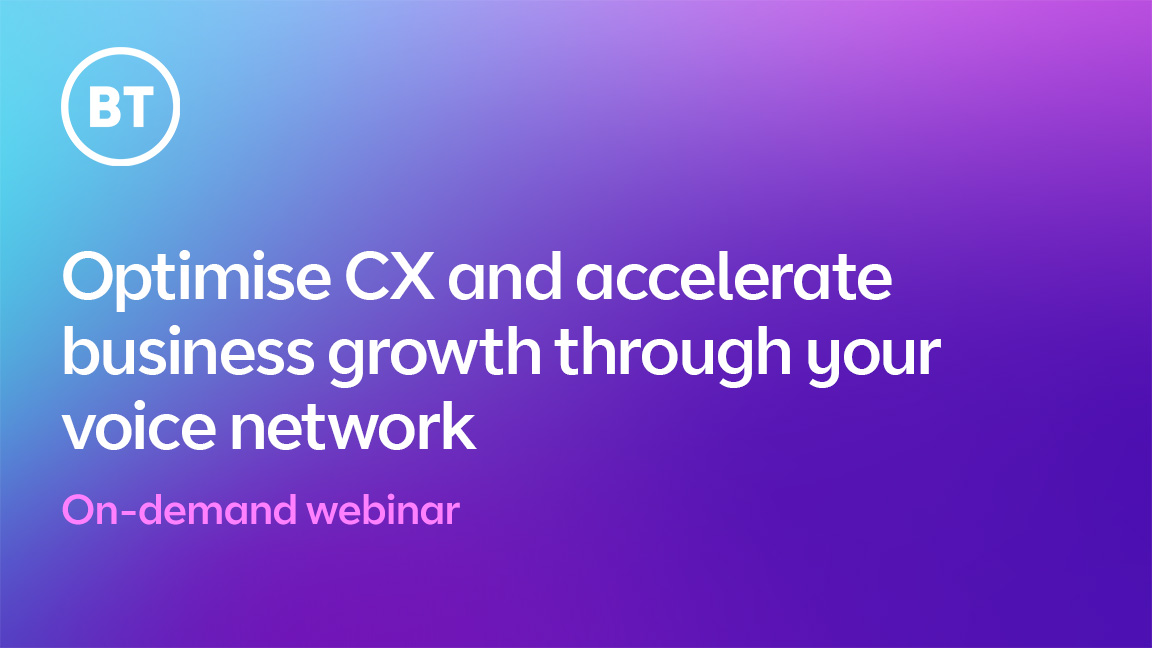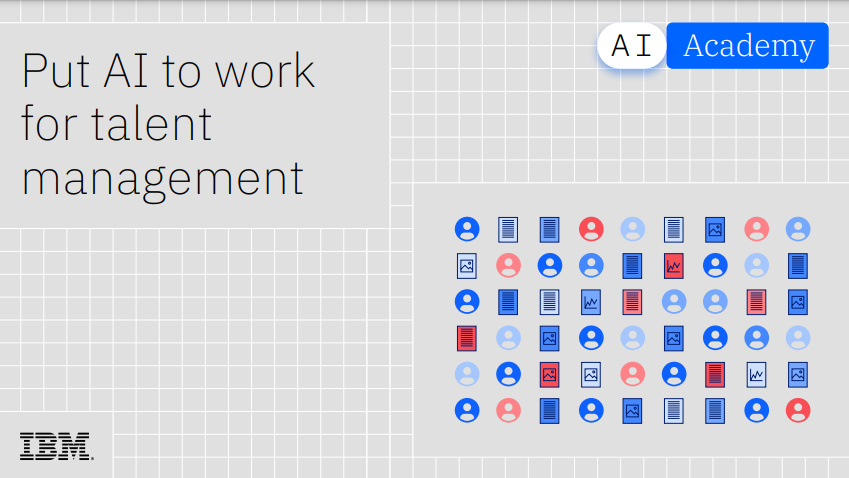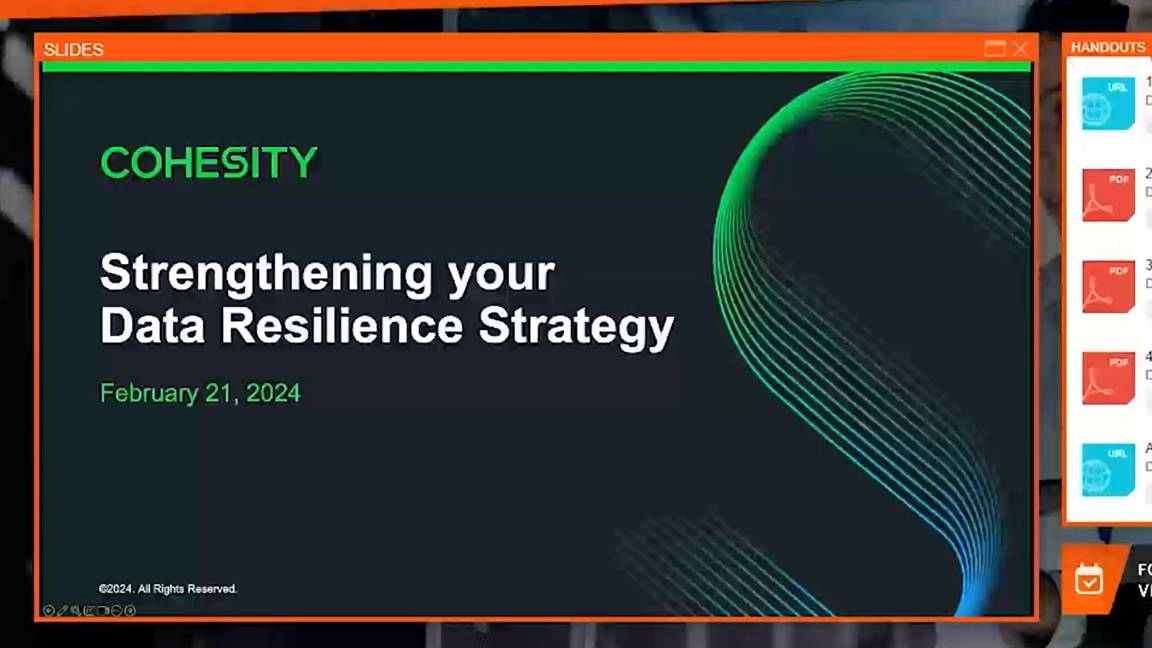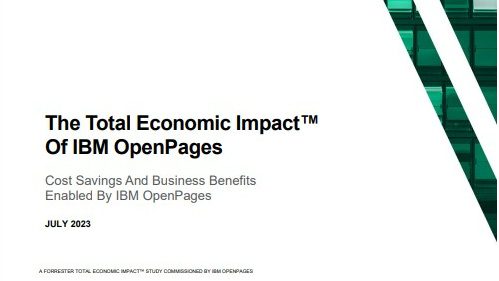How data can help SMBs with digital transformation
Improve collaboration, enhance customer insights and more by making data a key part of your digital transformation strategy

We are living in an increasingly data-driven world, with access to unparalleled quantities of information. The cumulative nature of the digital economy is showing no sign of stalling. A company's ability to compete will increasingly rely on its capacity to make swifter, more educated decisions. Here, data can be the difference between keeping above water, and sinking.
The challenges for large enterprises with digital transformation projects are well documented, and many have executed tools to make use of the data they produce. But how are SMBs managing with digital transformation?
According to a study from SMB Group, 48% of small and medium businesses are preparing to engage in activities to support them in adapting and transforming their businesses for a digital future, with 36% already executing plans. SMBs are most likely to put the money towards enhancing employee productivity, streamlining the customer experience, and improving decision making.
This final point is an increasingly critical one. The more information and data a company has, the more able it is to make smart decisions and investments in technology and people. But information and data alone don't offer the full picture; so how can small and medium businesses use the information they have and turn it into actionable understanding for digital transformation?
Improved collaboration
If you've just invested in tools to aid collaboration, data can help you select what is being used effectively and what is redundant, the type of staff need more of. Even with small teams, data can highlight opportunities for improved ways of working, or whether additional support is needed for processes that are working well.
Data can also be used to gather information on current projects, for example marketing campaigns or internal workflows. When the data is collected across a project and has been analysed by the teams, it is much easier to identify methods for improving ways of working, which in turn can offer insight across different parts of the business.
RELATED RESOURCE

How virtual desktop infrastructure enables digital transformation
Challenges and benefits of VDI
An important part of this is enlightening employees about what data analytics is, and what business issues it can be used to solve. This, in turn, will help change the working culture from being one of seeing known facts, to concentrating on the unanswered questions and using data to drive those decisions based on the answers.
Get the ITPro daily newsletter
Sign up today and you will receive a free copy of our Future Focus 2025 report - the leading guidance on AI, cybersecurity and other IT challenges as per 700+ senior executives
Collaboration is not restricted only to employees. Analytical insight inferred from data will improve the value of the wider business in the eyes of possible partners. Collaboration across businesses could result, with advantages offered in return from the sharing of data. Alternatively, data can be viewed as a commodity, and once it is centralised and analysed, it can be sold to raise profits.
An extra degree of caution should be wielded when using data as a tool to increase collaboration across businesses. Data spread across disparate digital applications can make it more vulnerable to cyber threats. The use of different defences from business to business can even detract from overall security, with IT departments having to navigate software they may not be familiar with. Moreover, issues regarding intellectual property rights have been known to arise.
Discover efficiencies
Smaller businesses can't afford to spend lots of money on suboptimal campaigns in the same way as larger organisations, and that means that identifying areas where cost and time savings can be made has a tangible value. Data can be used to highlight projects and tools that are working well, as well as ones that aren't being used to their full capacity, such as cloud storage or software licences. Using data in this way can add up to bigger savings in the long term.
Data showing usage patterns for software or tools in the business can also be a good way to identify ways to scale. It can be used to highlight periods of high demand for resources, and in turn where investment is needed in the future.
Digital transformation itself is a constant process, and therefore there will always be new efficiencies that data analysis can identify as the business and the technology within it evolve.
Introduce automation
Data can help identify areas where routine tasks can be automated in a business, however large or small. One of the advantages of introducing automation as part of a digital transformation strategy is that it can be used in just a few small areas without needing significant investment, and then scaled up across different parts of the business as and when it's needed.
Artificial intelligence (AI) applications that feed on data are increasingly found at the heart of digital transformation. Simply, the greater quantities of data that are channelled into AI applications, the more information that can be processed, producing business-insight and subsequently helping to induce wider digital transformation.
When it comes to practically implementing AI, a study from Salesforce has revealed that while just 8% of SMBs are using AI today, an additional 32% have plans to implement the technology, with uses ranging from automatic customer recommendations to predictive forecasting and automated campaign insights.
Enhanced customer insights
Data can provide insights into customer behaviour that will enable even small businesses to identify how they can optimise a customer's experience, whatever industry the business may operate in.
Keeping up with changing customer expectations can be tough - in fact, 34% of respondents to a Small & Medium Business Trends report identified this as one of their top challenges. But this is an area data can really help out.
Being able to deliver recommendations and special offers to customers based on factors like location and purchase history is much more likely to cultivate loyalty. Customer Relationship Management (CRM) systems can help manage expectations and scale the business, and many vendors have options that can be tailored to smaller businesses. Even simple data gathering tools can improve the customer experience for small businesses without needing a costly big data system.
RELATED RESOURCE

How virtual desktop infrastructure enables digital transformation
Challenges and benefits of VDI
In the long term, data is also valuable for predicting trends and identifying new business opportunities, whether that be economic trends or customer spending patterns.
A study from Econsultancy and Adobe found that data was a key area of investment for companies, with 65% of respondents saying that this would help them to better understand customer experience requirements. This was a more popular priority than optimising internal collaboration, or optimising workflows within the business, showing how important data can be in identifying points of friction and improving customer experiences.
None of the strategies above require huge investments in expensive software or hardware. Often, simple data analytics tools that integrate with existing technology can draw together enough data to be able to inform decisions in an SMB without needing to spend lots of money on all-singing, all-dancing systems designed for larger businesses.
What is vital, however, is that the data is of sufficient quality so that it can be understood and easily used by analytics programs and applications. Good business decisions will only be made on the back of good data.
-
 DocuWare CEO Michael Berger on the company’s rapid growth
DocuWare CEO Michael Berger on the company’s rapid growthNews ChannelPro sat down with DocuWare CEO Michael Berger to discuss the company's rapid growth and channel strategy.
By Bobby Hellard Published
-
 Seized database helps Europol snare botnet customers in ‘Operation Endgame’ follow-up sting
Seized database helps Europol snare botnet customers in ‘Operation Endgame’ follow-up stingNews Europol has detained several people believed to be involved in a botnet operation as part of a follow-up to a major takedown last year.
By Emma Woollacott Published
-
 'Digital hide-and-seek': Workers are wasting hundreds of hours a year sourcing the information they need to carry out their role
'Digital hide-and-seek': Workers are wasting hundreds of hours a year sourcing the information they need to carry out their roleNews Knowledge workers globally are wasting a quarter of their working week tracking down information, new research from Atlassian has revealed.
By George Fitzmaurice Published
-
 Optimise CX and accelerate business growth through your voice network
Optimise CX and accelerate business growth through your voice networkwhitepaper Protecting the human experience in a digital world
By ITPro Published
-
 Enterprises are doubling down on IT optimization strategies – and it’s delivering huge financial returns
Enterprises are doubling down on IT optimization strategies – and it’s delivering huge financial returnsNews Organizations that have cracked IT cost optimization and innovation reap the rewards both financially and in terms of time to market.
By Emma Woollacott Published
-
 IDC InfoBrief: Sustainability doesn’t need to be all stick and no carrot
IDC InfoBrief: Sustainability doesn’t need to be all stick and no carrotwhitepaper CIOs are facing two conflicting strategic imperatives
By ITPro Published
-
 Put AI to work for talent management
Put AI to work for talent managementWhitepaper Change the way we define jobs and the skills required to support business and employee needs
By ITPro Published
-
 Untethered: How CIOs and CISOs are paving the way for the new hybrid workforce
Untethered: How CIOs and CISOs are paving the way for the new hybrid workforceWhitepaper Effective techniques to transition from exposed legacy infrastructure to an effective zero trust strategy
By ITPro Published
-
 Strengthening your data resilience strategy
Strengthening your data resilience strategywebinar Safeguard your digital assets
By ITPro Published
-
 Forrester: The Total Economic Impact™ Of IBM OpenPages
Forrester: The Total Economic Impact™ Of IBM OpenPageswhitepaper Cost savings and business benefits enabled by IBM OpenPages
By ITPro Last updated